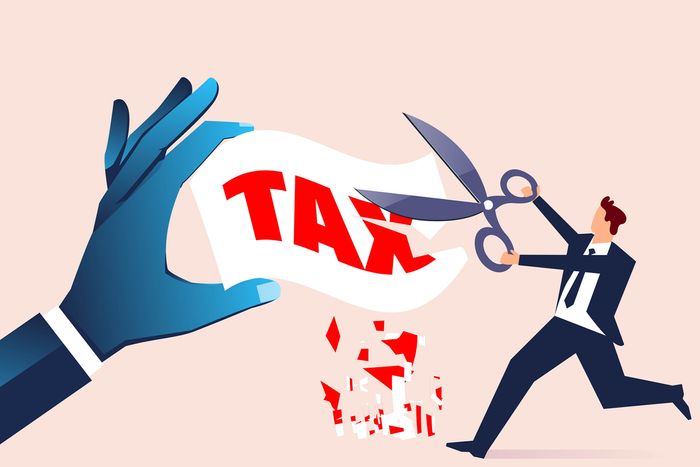February 2024 Newsletter
7 March 2024
Hello clients, friends and family members
Welcome to our first newsletter for 2024. Although we haven’t had the best weather here in Melbourne during the Summer break, we still hope you all had a lovely break (if you were lucky enough to get one) and are fully re-charged for another exciting year ahead.
You will see below that we have now launched our new GFM website with greater interaction for clients and the ability to book your own appointments online.
The team at GFM are working hard to complete FY23 compliance needs and look forward to working with you on your FY24 results in the next few months.
Stage 3 tax cuts (although promised at election) have been amended and you will see the impact below.
Wishing all our clients a profitable and healthy 2024
Darren, Brent & the team at GFM Accountants

GFM have rebranded!
We have dropped the .com and are now gfmaccountants.au
Our new website is up and running so why not hop on over and take a look.
You can now book appointments directly via the website and find a wealth of handy information.
We welcome your feed back so please let us know what you think.
Special Points Of Interest
- The 2023 Tax Return Lodgement year is drawing to a close
- Superannuation – Important Information For Business
- The Redesigned Stage 3 Personal income tax cuts
- Notice of officeholder data-matching program
- ATO warning regarding prohibited SMSF loans
- Don’t forget the two further ‘boosts’!.
- GFM Fundraising.
- Claming deductions in relation to a holiday home.
- Key Dates.

The 2023 Tax Return Lodgement year is drawing to a close.
If you haven’t completed your 2023 or back year/s income tax return/s yet we are here and ready to help.
• Option 1 – Email your information to us, we will draft your return and then contact you to finalise prior to emailing for signature via our “pandadoc” electronic signature
program.
• Option 2 – Book a telephone meeting using the link above and we will go through your return with you, prepare your return and then email to you for signing via our “pandadoc” electronic signature program.
• Option 3 – Book a face-to-face meeting using the link above and we will meet with you in person to discuss/complete your income tax return.
If you have any queries please contact our friendly reception staff on 03 9374 2422, who will be only too willing to assist you.

Superannuation – Important Information For Business
ATO Cracks Down on Superannuation Guarantee
For the last few years the ATO has had a much softer approach to debt collection and compliance due to the effects of the COVID pandemic. But recently the ATO has changed this approach and is becoming much less forgiving.
One area this is becoming very apparent is in relation to employee’s superannuation entitlements. The ATO’s change in attitude, coupled with more real-time information than ever before, has meant they are following up with employers for late payments (or non-payment) faster. Below, we explain the importance of on time payments, and the cost of missing the due date
Employers in Australia generally have an obligation to make superannuation guarantee payments on behalf of their employees at a current rate of 11% of the employee’s ordinary time earnings. This rate is currently legislated to increase incrementally to 12% by the 2025.Superannuation guarantee payments are currently due to be made on at least a quarterly basis, 28 days after quarter end. The due dates are as follows:
- Quarter ended 31 March – due 28 April
- Quarter ended 30 June – due 28 July
- Quarter ended 30 September – due 28 October
- Quarter ended 31 December – due 28 January
Importantly these are the due dates by which the funds need to be RECEIVED by the superfund.
So you should action this payment a few days before the due date, to allow for processing time.
How easy is it for the ATO to know I have missed a payment?
The ATO has access to much more real-time data on when superannuation payments have been made, ever since payments were required to be “SuperStream” compliant, around 8 years ago.
Coupled with Single Touch Payroll providing real-time information on wages payments to employees, it is now very easy for the ATO to identify unpaid or incorrect superannuation payments, and pursue the offending employer.
What happens if I miss a payment?
If you pay your superannuation late the ATO requires you to disclose this by lodging what is known as a Superannuation Guarantee Charge (SGC) Statement. The SGC is also calculated differently than the normal super guarantee which can increase the amount considerably.
The calculation for SGC comes to:
- 11% of all gross wages reported for the quarter (not limited to Ordinary Times Earnings)
- Plus interest charged at 10%
- Plus an administration fee of $20 per employee
You will receive a credit for any superannuation paid prior to the due date, and a can claim a further credit for superannuation paid late. However the late payment credit is applied after the interest and penalties have been applied on the SGC. The late payment is also not tax deductible
Please see below a link to the SGC lodgement form.
- Excel version of the SGC statement.

The Redesigned Stage 3 Personal Income Tax Cuts
The personal income tax cuts legislated to commence on
1 July 2024 will be realigned and redistributed under a proposal released by the Federal Government.
After much speculation, the Government has announced that they will amend the legislated Stage 3 tax cuts scheduled to commence on 1 July 2024. This will mean that more Australian taxpayers will receive a personal income tax cut and take home more in their pay packet from 1 July, but for some, the impact will be less favourable than it would have been prior to the redesign.
What will change?
The revised tax cuts redistribute the reforms to benefit lower income households that have been disproportionately impacted by cost of living pressures.
Under the proposed redesign, all resident taxpayers with taxable income under $146,486, who would actually have an income tax liability, will receive a larger tax cut compared with the existing Stage 3 plan. For example:
- An individual with taxable income of $40,000 will receive a tax cut of $654, in contrast to receiving no tax cut under the current Stage 3 plan (but they are likely to have benefited from the tax cuts at Stage 1 and Stage 2).
- An individual with taxable income of $100,000 would receive a tax cut of $2,179, which is $804 more than under the current Stage 3 plan.
However, an individual earning $200,000 will have the benefit of the Stage 3 plan slashed to around half of what was expected from $9,075 to $4,529. There is still a benefit compared with current tax rates, just not as much.
There is additional relief for low-income earners with the Medicare Levy low-income thresholds expected to increase by 7.1% in line with inflation. It is expected that an individual will not start paying the 2% Medicare Levy until their income reaches $32,500 (up from $26,000).
While the proposed redesign is intended to be broadly revenue neutral compared with the existing budgeted Stage 3 plan, it will cost around $1bn more over the next four years before bracket creep starts to diminish the gains.
The current, legislated, and redesigned Stage 3 tax rates for Australian resident taxpayers
| Tax rate | 2023-24 | 2024-25 legislated | 2024-25 proposed |
|---|---|---|---|
| 0% | $0 – $18,200 | $0 – $18,200 | $0 – $18,200 |
| 16% | $18,201 – $45,000 | ||
| 19% | $18,201 – $45,000 | $18,201 – $45,000 | |
| 30% | $45,001 – $200,000 | $45,001 – $135,000 | |
| 32.5% | $45,001 – $120,000 | ||
| 37% | $120,001 – $180,000 | $135,001 – $190,000 | |
| 45% | >$180,000 | >$200,000 | >$190,000 |
But It’s not a sure thing just yet!
The Government will need to quickly enact amending legislation to make the redesigned Stage 3 tax cuts a reality by 1 July 2024. This will involve garnering the support of the independents or minor parties to secure its passage through Parliament
Notice of officeholder data-matching program
The ATO will acquire officeholder data from ASIC, the Office of the Registrar of Indigenous Corporations and the Australian Charities and Not-for-profits Commission for the 2024 and 2025 income years, including details such as:
- their name, address and date of birth;
- email address and contact phone number;
- organisation class, type and status, and state of incorporation; and
- officeholder type, role type, and officeholder role start and end dates.
The ATO estimates that records relating to approximately 11 million individuals will be obtained.
This program aims to (among other things) enable the Australian Business Registry Services to increase uptake of the director ID, and better utilise registry data to combat unlawful activity.
ATO warning regarding prohibited SMSF loans
Loans to members continue to be the highest reported contravention of the superannuation laws that the ATO sees in auditor contravention reports.
SMSF trustees should remember that they cannot loan money or provide other forms of financial assistance to a member or relative, and if they do, they can incur a penalty of up to $18,780. They may also be disqualified as a trustee.
SMSF trustees also cannot loan money to a related party, such as a business, where the value of the loan exceeds 5% of the value of the fund’s total assets, as this is a prohibited ‘in-house asset’ investment.
If the SMSF’s in-house assets exceed 5% of the total value of its assets at the end of the financial year, the trustee must prepare a plan to reduce their in-house assets to less than 5%, which must be implemented by the end of the following financial year.
If a trustee has made a prohibited loan from their SMSF, the loan must be repaid as soon as possible.

GFM Fundraising
Through the months of January – March 2024 the GFM Staff gold coin donations will be raising funds to support the “1ST Hoppers Crossing Scout Group”
We are hoping our funds will help support and provide valuable resources to improve the Scout Hall for the youth of Hoppers Crossing to enjoy as the leaders teach them to become better community members .
Don’t forget the two further ‘boosts’!
Although the ‘Technology Investment Boost’ has come to an end (it provided a bonus deduction for eligible expenditure incurred until 30 June 2023), it is important to remember that there are two further ‘boosts’ providing bonus deductions for small businesses, and both apply to eligible expenditure incurred up until 30 June 2024.
The Skills and Training Boost provides small or medium businesses with a bonus 20% deduction for eligible expenditure incurred on external training for employees, to support such businesses to train and upskill their employees.
This boost applies to eligible expenditure incurred from 29 March 2022 until 30 June 2024.
The Small Business Energy Incentive (Boost) is designed to support small business electrification and more efficient energy use and will apply to eligible expenditure incurred between 1 July 2023 and 30 June 2024 (once the relevant legislation is passed).
This boost provides small or medium businesses with a bonus 20% deduction for the cost of:
- eligible depreciating assets; and/or
- eligible improvements incurred in relation to existing depreciating assets,
that support electrification or energy efficiency.
To be eligible for either of the above ‘boosts’, a business taxpayer must satisfy several conditions.
Please contact our office if you need any further information regarding the above ‘boosts’.

Claiming deductions in relation to a holiday home
Taxpayers should remember that they can only claim deductions for holiday home expenses to the extent they are incurred for the purpose of gaining or producing rental income.
They need to consider the following in determining whether the deductions they wish to claim are valid rental deductions:
- How many days during the income year did they use or block out the property for their own use? Taxpayers cannot claim deductions for the periods the property was used or blocked out by them.
- How and where did they advertise the property for rent, and is the rent in line with market values? If they only used obscure means of advertising, or put unreasonable restrictions or conditions in the advertisement, they may not be entitled to claim deductions.
- Will any restrictions, or the general condition of the property, reduce interest from potential holiday makers? If their property is not in a tenantable condition, they may not be entitled to claim deductions.
- Has the taxpayer or their family or friends used the property? Taxpayers cannot claim for periods of private use or when the property is kept vacant for personal reasons.
- Is any part of the property off limits to tenants? When taxpayers claim deductions, they should ensure they calculate and apportion deductions in relation to the part of the property that is available for rent.

